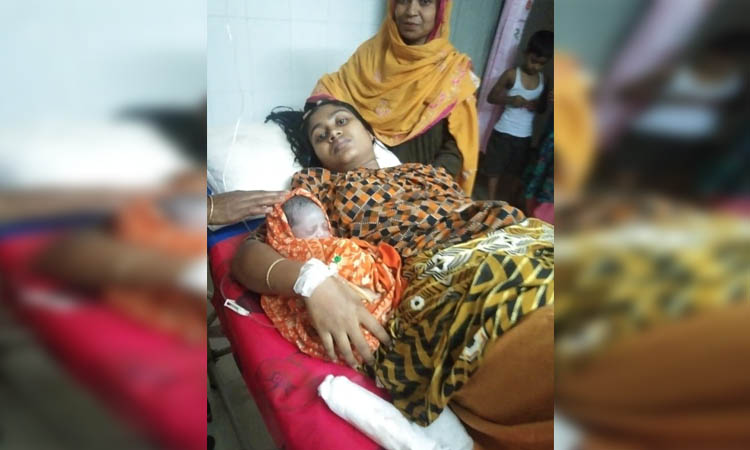News Flash
News Flash

By Md Aynal Haque
RAJSHAHI, Aug 28, 2025 (BSS) - Existing healthcare facilities in Rajshahi division are significantly contributing to increasing access, equity, and quality of services, especially for rural and marginalized populations.
Officials said these facilities support wider government initiatives aimed at strengthening Maternal, Neonatal, Child and Adolescent Health (MNCAH), Essential Service Delivery (ESD), and control of communicable and non-communicable diseases.
Speaking to BSS, Divisional Director of Health Dr Habibur Rahman said Rajshahi division now has a strong base in tertiary care with multiple chest hospitals and medical colleges, although the population-to-bed ratio remains a challenge.
He said the Health Engineering Department (HED) has implemented numerous development projects to expand healthcare delivery at the grassroots level, enhancing confidence among rural doctors, technicians and support staff.
Dr Rahman noted that strengthening upazila and union-level health services is crucial to meeting national targets, particularly in reducing maternal and newborn mortality rates in line with Sustainable Development Goal-3 (SDG-3).
Superintending Engineer of HED Muhammad Moniruzzaman said eleven 10-bed Mother and Child Welfare Centres (MCWCs) have been constructed in Naogaon, Bogura and Sirajganj districts.
The Kazipur Upazila Health Complex has been upgraded from 50 to 100 beds, while 31-bed health complexes at Godagari, Charghat, Gomostapur and Nachole have undergone extensive renovation.
Several Union Health and Family Welfare Centres (UHFWCs)-including those at Alampur, Dharabarisha and Khubjipur-have been reconstructed, along with extensions and repairs of the Regional Population Training Institutes (RPTI) in Rajshahi and Bogura.
Four new Medical Assistant Training Schools and three Institutes of Health Technology (IHTs) have been set up in Naogaon, Joypurhat and Sirajganj, along with a 50-bed health complex at Naldanga in Natore, three 20-bed hospitals in Sirajganj, and a 10-bed hospital in Bera Upazila of Pabna.
The upgraded union-level facilities now offer need-based services including antenatal care (ANC), postnatal care (PNC), normal deliveries, and neonatal care. Labor rooms have been equipped with essential tools, contributing to a notable reduction in maternal and neonatal mortality.
Six Upazila Health Complexes in Pabna and Joypurhat have been remodeled, alongside the establishment of nursing colleges in Sirajganj and Lalmonirhat and nursing institutes in Natore.
Eight 31-bed Upazila Health Complexes in Rajshahi, Pabna, Bogura, Natore, Rangpur and Dinajpur have been upgraded to 50 beds.
Additional infrastructure includes new offices for Deputy Director and Divisional Director of the Department of Family Planning (DFP) in Rajshahi and Naogaon, as well as multipurpose buildings at Rajshahi Medical College Hospital and Bogura Medical College Hospital.
A Family Welfare Volunteer Training Institute has been established at Kazipur in Sirajganj, while a 100-bed diabetic hospital, isolation wards, and an EPI store have been constructed in Rajshahi city.
Twenty-eight community clinics (CCs) have been built, and several Upazila Health Complexes have seen vertical and horizontal expansion.
Moniruzzaman said the completed projects are already improving healthcare standards across rural and urban areas of the division.
Former Charghat Upazila Chairman Abu Sayeed Chand told BSS that people in remote areas are now receiving physician consultation, medical services, and essential medicines from upazila hospitals, UHFWCs, and community clinics without hassle.
He said UHFWCs and CCs have gained public trust for providing reliable primary and reproductive healthcare services at the doorstep.
The present interim government is laying special emphasis on institutional delivery, as well as ensuring ANC, PNC, and neonatal care to achieve the SDG-3 targets by 2030.
Chand noted that union-level health facilities have been performing normal vaginal deliveries (NVDs) for the last few years, offering substantial benefits to pregnant women in rural areas.
Family welfare visitors are also providing regular home visits to ensure maternal health support, he added.